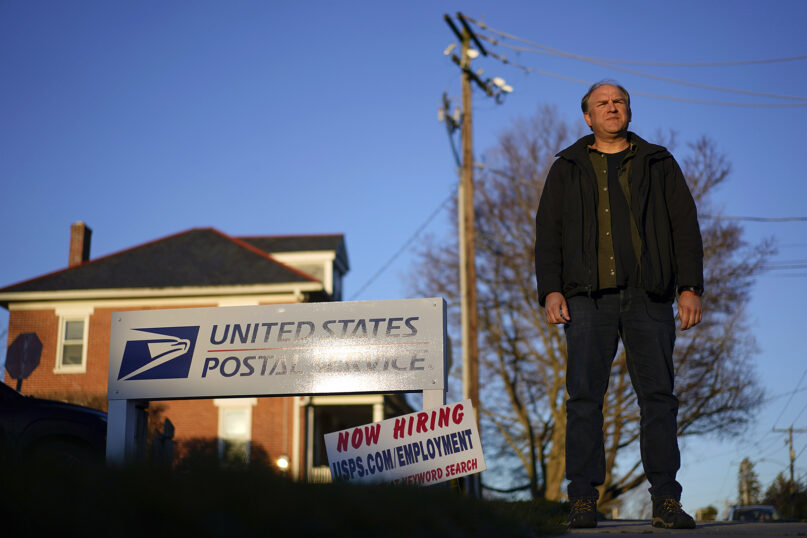(RNS) — The U.S. Supreme Court handed down several decisions last week continuing its rightward march through some of the most controversial issues of the day. Lost in the conservative shuffle, however, was one case that expanded religious free exercise that should gladden the hearts of liberals.
That was Groff v. DeJoy, in which the court unanimously found that employers have to accommodate the religious practices of their employees more substantially than has been required under its decades-long interpretation of the 1964 Civil Rights Act.
Title VII of that measure bans employment discrimination based on religion (along with race, color, sex and national origin), but in a 1977 decision (Trans World Airlines v. Hardison), the court ruled that it would be “an undue hardship” on TWA, a now-defunct carrier, to give an employee Saturdays off because he had joined a Christian denomination that requires Saturday Sabbath observance.
Writing for the 7-2 majority in that case, Justice Byron White held that employees’ religious practice had to be accommodated only if the cost was “de minimis,” a Latin legal term denoting anything too trivial to be taken into account.
Dissenting in the ruling were the court’s two most liberal members at the time, Justices Thurgood Marshall and William Brennan.
“An employer, the Court concludes, need not grant even the most minor special privilege to religious observers to enable them to follow their faith,” Marshall wrote. “As a question of social policy, this result is deeply troubling, for a society that truly values religious pluralism cannot compel adherents of minority religions to make the cruel choice of surrendering their religion or their job.”
A decade later, the court made a comparable “de minimis” decision in Goldman v. Weinberger, ruling 5-4 that an Orthodox Jewish Air Force chaplain had no free exercise right to wear a yarmulke indoors on his base. Marshall and Brennan again dissented, this time joined by Justices Harry Blackmun and Sandra Day O’Connor.
The culmination of this conservative minimization of free exercise rights was Employment Division v. Smith (1990), in which Antonin Scalia managed to persuade four colleagues to join him in barring free exercise cases from federal court so long as the laws being challenged were “neutral” and “generally applicable.” And again, it was the court’s most liberal justices — Marshall and Brennan, joined by Blackmun and (in the reasoning though not in the judgment) O’Connor — who disagreed.
Here is not the place to go over how the worm has turned over the past three decades. Suffice it to say that religious liberty became a shibboleth of conservative jurists, even as liberal ones maintained their support for minority religious rights.
Ergo, last week’s 9-0 decision in Groff showed the liberals and conservatives on the same free exercise page — in this case on behalf of a Christian U.S. Postal Service worker who did not want to be compelled to work on Sundays delivering packages for Amazon (under USPS’ contract with that company).
Let it be noted that the postal worker’s position was supported by amicus briefs from Jews, Hindus, Muslims, Sikhs and Seventh-day Adventists. Let it also be noted that the Biden Justice Department itself kept to the old-time liberal religion, asking the court to abandon its “de minimis” interpretation of Title VII.
Writing for the unanimous court, Justice Samuel Alito did not go quite as far as either the plaintiff or the government wanted. Rather than adopting rules against discrimination derived from Americans with Disabilities Act case law or the Equal Employment Opportunity Commission’s more religion-friendly interpretation of the Hardison case, he ordered lower courts to reconsider the lawsuit based on the justices’ “clarification” of Hardison — i.e., its rejection of the view that anything more than a minimal cost would constitute an “undue hardship” to the employer.
All in all, Groff v. DeJoy puts the country back on a path marked out by the free exercise decisions and the civil rights legislation of the mid-20th century. As for the religiously significant case that drew all the attention last week, 303 Creative v. Elenis, that’s another story for another day.






